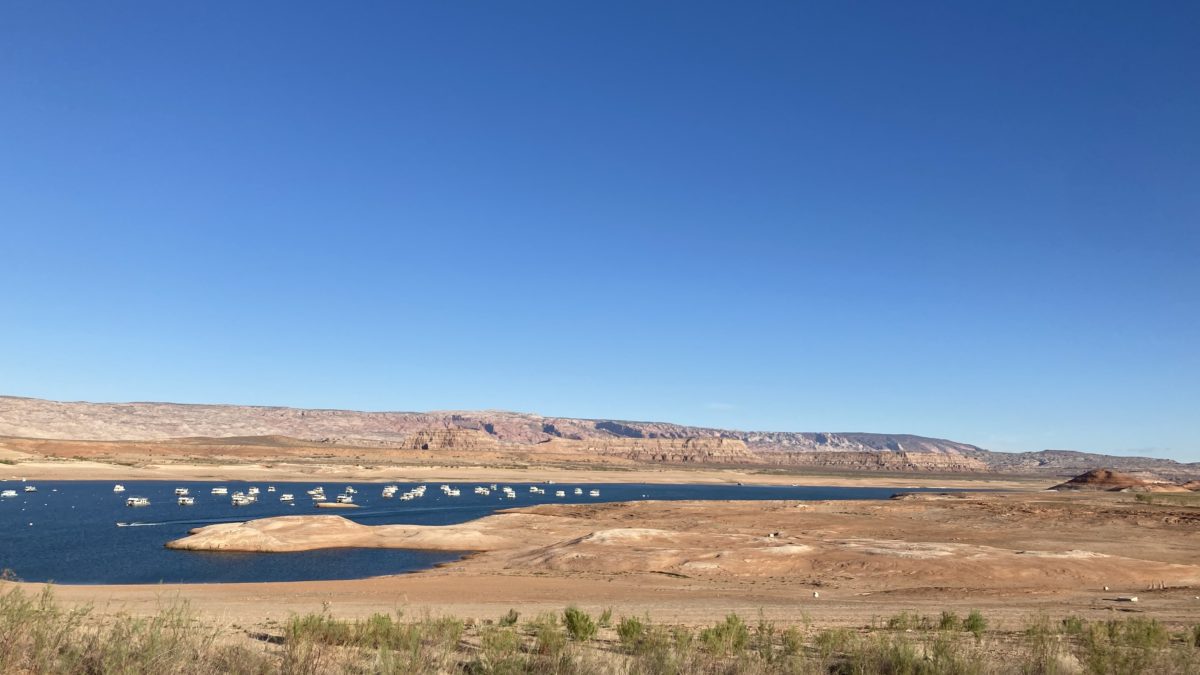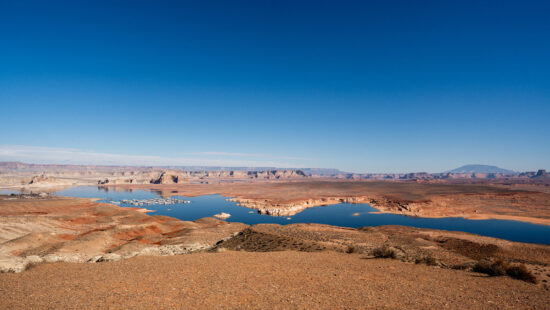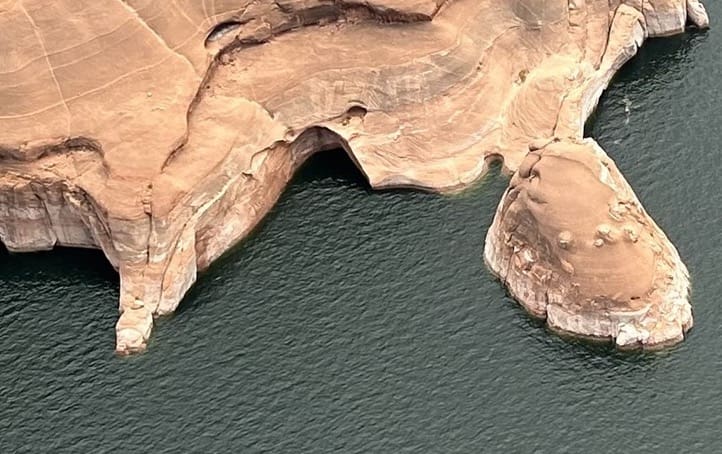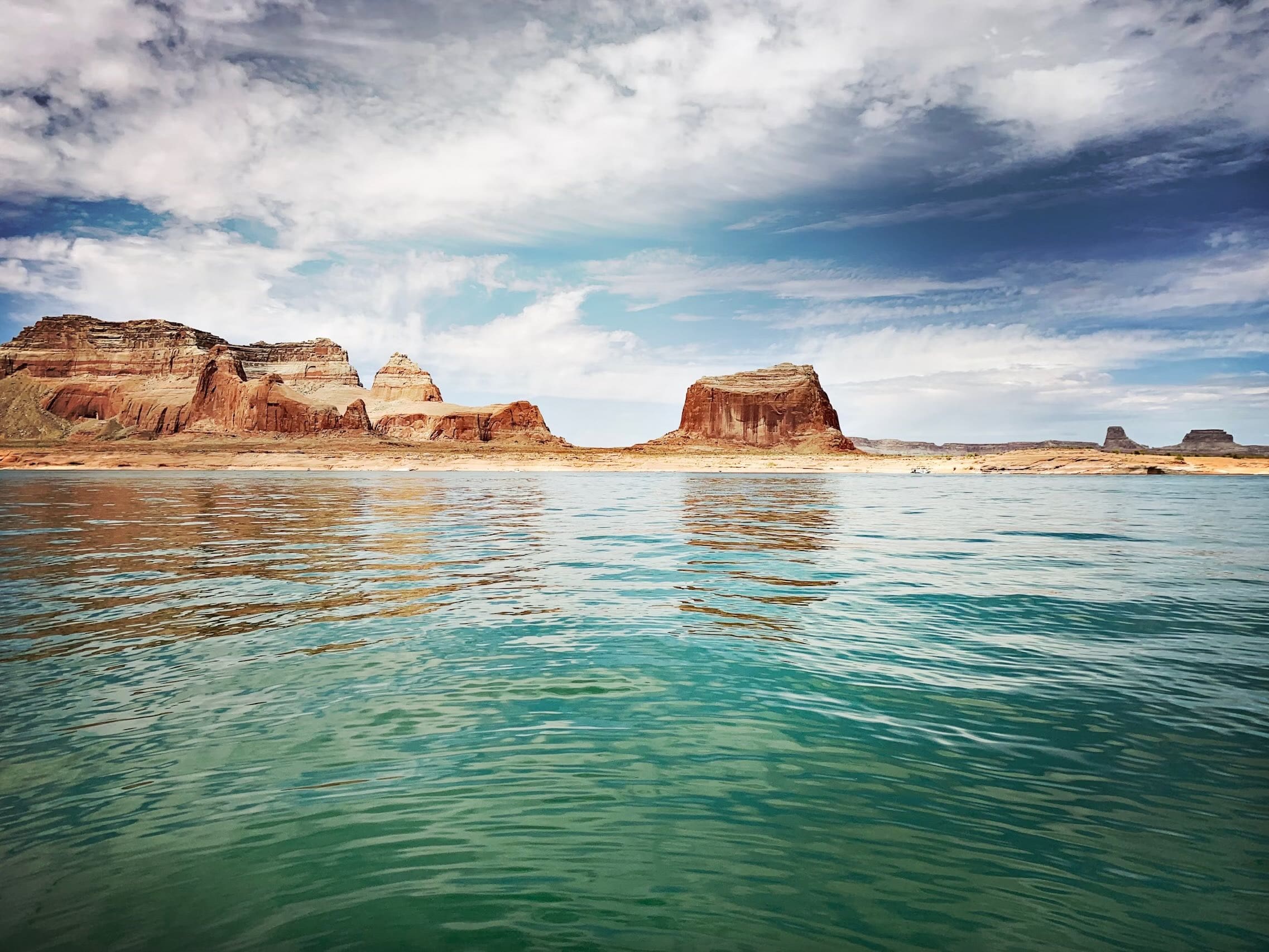News
New projections spell trouble for Lake Powell

Lake Powell in Bullfrog, Utah, May 2021. Photo: Townlift.
GLEN CANYON NATIONAL RECREATION AREA, Utah — On Wednesday, the Bureau of Reclamation (BOR) released updated modeling projections for Lake Powell and Lake Mead, the country’s two largest reservoirs.
The new projections show the possibility of Lake Powell falling below the minimum power pool — the level of water needed to produce electricity at Glen Canyon Dam — as early as July of next year. Beyond 2022, the chance the water could fall below that level ranges between 25 and 35 percent.
“The latest outlook for Lake Powell is troubling,” said BOR’s Upper Colorado Basin Regional Director Wayne Pullan. “This highlights the importance of continuing to work collaboratively with the Basin States, Tribes and other partners toward solutions.”
BOR started supplemental water deliveries to Powell in July of this year, transferring supply from Flaming Gorge, Blue Mesa, and Navajo reservoirs. Those deliveries will provide up to 181 thousand acre-feet of water to Powell by the end of 2021.
The projections for Lake Mead show the chance it falls under 1,025 feet (the third shortage trigger) in 2025 is as high as 66 percent. In the same year, there is a 22 percent chance the reservoir drops below 1,000 feet.
“This five-year probability table underscores the need for additional actions beyond the 2007 Guidelines and the 2019 Drought Contingency Plan to be taken to enhance our efforts to protect Lake Mead, Lake Powell and the Colorado River system overall,” said Tom Buschatzke, Director of the Arizona Department of Water Resources.
Most of the flow of the Colorado River originates in the Rocky Mountains. The Upper Basin experienced an exceptionally dry spring in 2021, with April to July runoff into Lake Powell totaling just 26% of average, despite near-average snowfall last winter. Total Colorado River system storage today is 39% of capacity, down from 49% at this time last year.
“We’re providing detailed information on our modeling and projections to further generate productive discussions about the future of Lake Powell and Lake Mead based on the best data available,” said BOR’s Lower Colorado Basin Regional Director Jacklynn Gould. “Being prepared to adopt further actions to protect the elevations at these reservoirs remains a Reclamation priority and focus.”
Appreciate the coverage? Help keep Park City informed.
TownLift is powered by our community. If you value independent, local news that keeps Park City connected and in the know, consider supporting our newsroom.


















